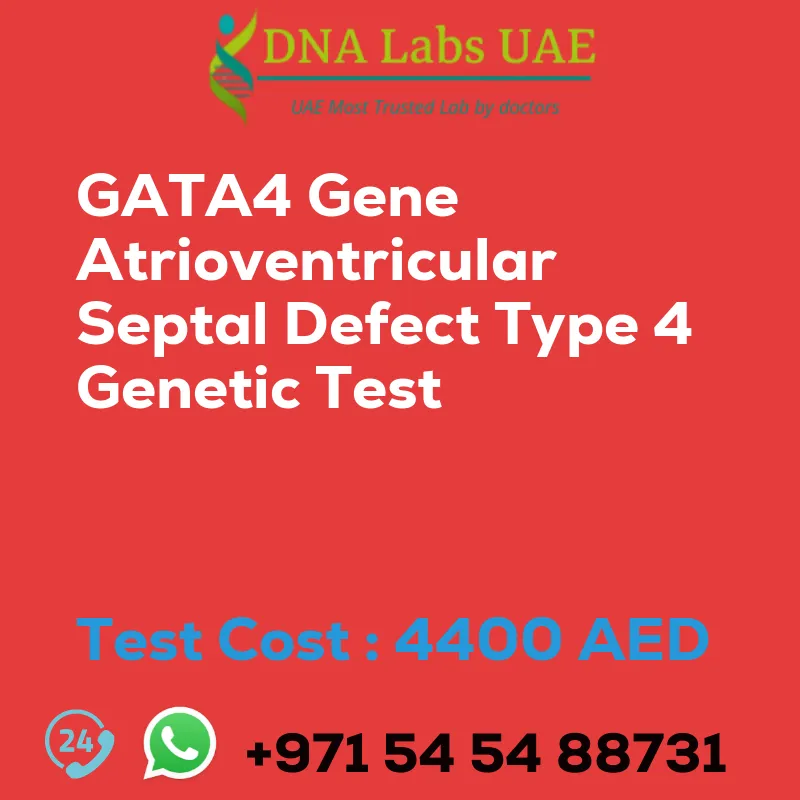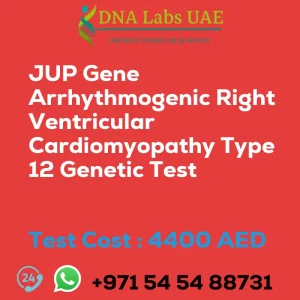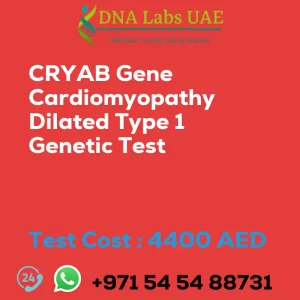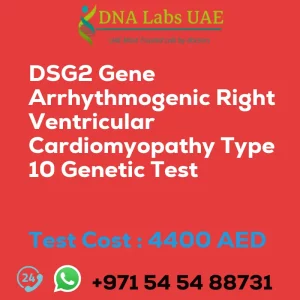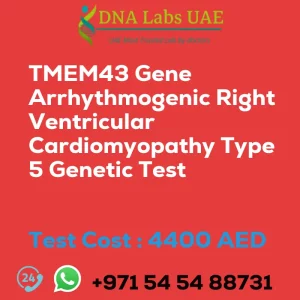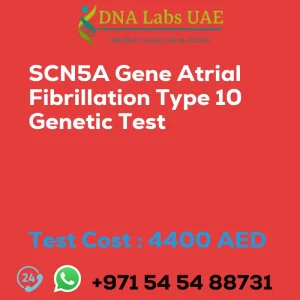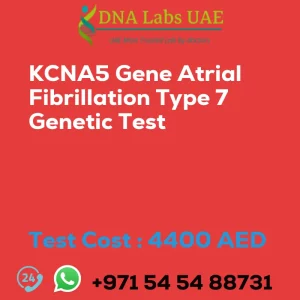GATA4 Gene Atrioventricular Septal Defect Type 4 Genetic Test
Test Name: GATA4 Gene Atrioventricular Septal Defect Type 4 Genetic Test
Components: Blood or Extracted DNA or One drop Blood on FTA Card
Price: 4400.0 AED
Report Delivery: 3 to 4 Weeks
Method: NGS Technology
Test Type: Cardiovascular Pneumology Disorders
Doctor: Cardiologist
Test Department: Genetics
Pre Test Information: Clinical History of Patient who is going for GATA4 Gene Atrioventricular Septal Defect Type 4 NGS Genetic DNA Test. A Genetic Counselling session to draw a pedigree chart of family members affected with GATA4 Gene Atrioventricular Septal Defect Type 4 NGS Genetic DNA Test gene GATA4
Test Details
The GATA4 gene is a transcription factor that plays a crucial role in heart development. Mutations in this gene have been associated with various cardiac abnormalities, including atrioventricular septal defects (AVSDs). AVSDs are congenital heart defects characterized by abnormal development of the atrial and ventricular septa, leading to abnormal blood flow between the atria and ventricles.
NGS (Next-Generation Sequencing) genetic testing is a powerful tool used to identify mutations in genes associated with various genetic disorders, including AVSDs. It allows for the simultaneous analysis of multiple genes, providing a comprehensive evaluation of the genetic basis of the condition. In the context of AVSDs, a NGS genetic test targeting the GATA4 gene would involve sequencing the coding regions and potentially the regulatory regions of this gene. The test aims to identify any mutations or variations in the GATA4 gene that may be responsible for the development of AVSD type 4.
By identifying specific genetic mutations, NGS genetic testing can help in diagnosing AVSDs and providing important information for genetic counseling, family planning, and potentially guiding personalized treatment options. It can also aid in understanding the underlying molecular mechanisms contributing to the disease and may facilitate the development of targeted therapies in the future.
| Test Name | GATA4 Gene Atrioventricular septal defect type 4 Genetic Test |
|---|---|
| Components | |
| Price | 4400.0 AED |
| Sample Condition | Blood or Extracted DNA or One drop Blood on FTA Card |
| Report Delivery | 3 to 4 Weeks |
| Method | NGS Technology |
| Test type | Cardiovascular Pneumology Disorders |
| Doctor | Cardiologist |
| Test Department: | Genetics |
| Pre Test Information | Clinical History of Patient who is going for GATA4 Gene Atrioventricular septal defect type 4 NGS Genetic DNA Test. A Genetic Counselling session to draw a pedigree chart of family members affected with GATA4 Gene Atrioventricular septal defect type 4 NGS Genetic DNA Test gene GATA4 |
| Test Details |
The GATA4 gene is a transcription factor that plays a crucial role in heart development. Mutations in this gene have been associated with various cardiac abnormalities, including atrioventricular septal defects (AVSDs). AVSDs are congenital heart defects characterized by abnormal development of the atrial and ventricular septa, leading to abnormal blood flow between the atria and ventricles. NGS (Next-Generation Sequencing) genetic testing is a powerful tool used to identify mutations in genes associated with various genetic disorders, including AVSDs. It allows for the simultaneous analysis of multiple genes, providing a comprehensive evaluation of the genetic basis of the condition. In the context of AVSDs, a NGS genetic test targeting the GATA4 gene would involve sequencing the coding regions and potentially the regulatory regions of this gene. The test aims to identify any mutations or variations in the GATA4 gene that may be responsible for the development of AVSD type 4. By identifying specific genetic mutations, NGS genetic testing can help in diagnosing AVSDs and providing important information for genetic counseling, family planning, and potentially guiding personalized treatment options. It can also aid in understanding the underlying molecular mechanisms contributing to the disease and may facilitate the development of targeted therapies in the future. |

